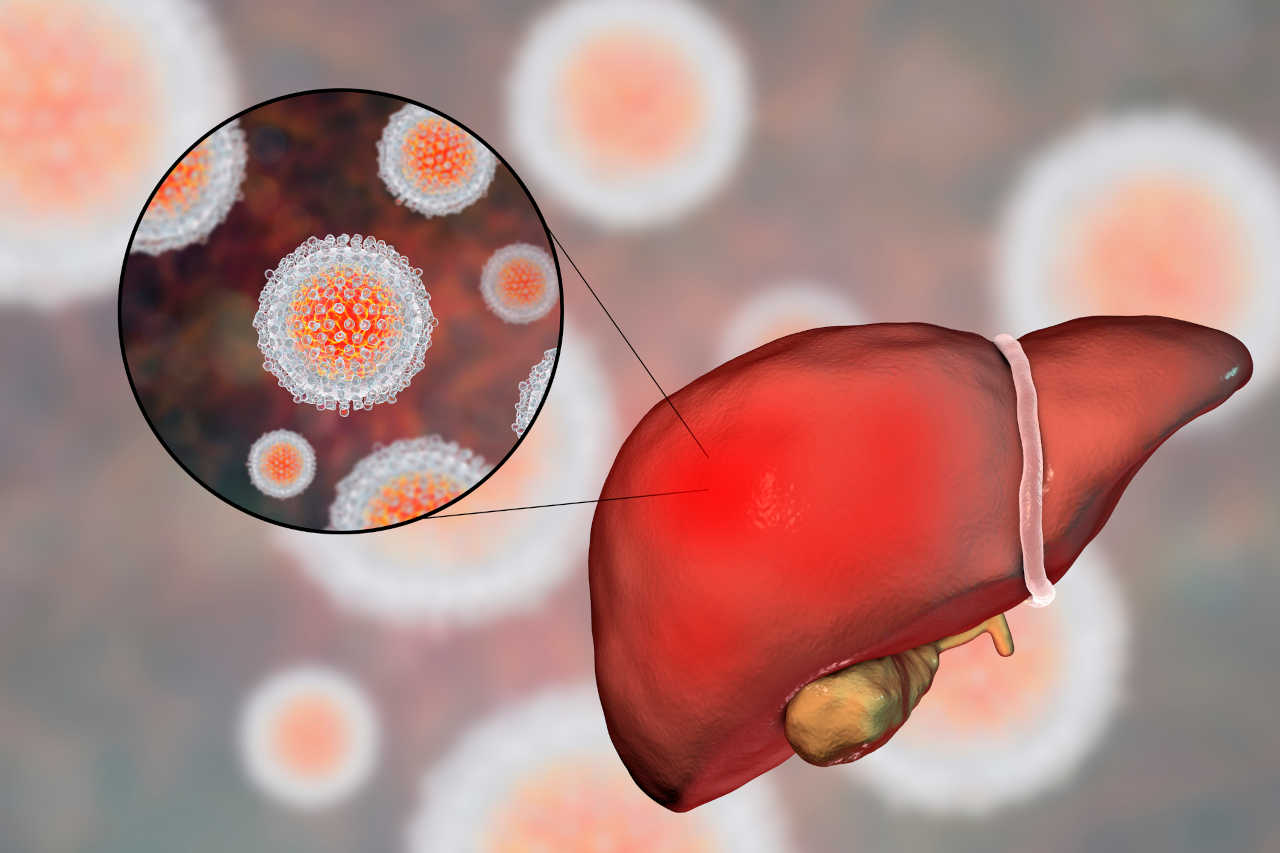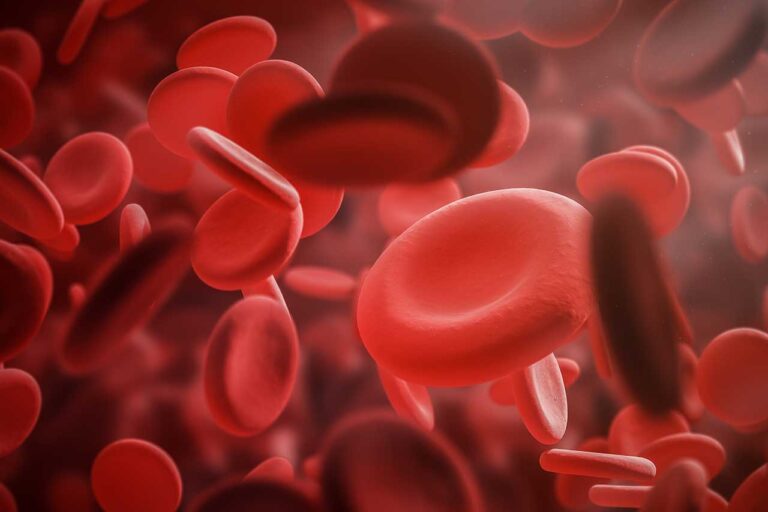
Mavyret is a prescription drug FDA-approved to treat chronic (long-term) hepatitis C in adults and children 3 years and older. It is a combination product that contains two antiviral medications: pibrentasvir and glecaprevir.
Your doctor may prescribe this medication if you have certain types of hepatitis C (liver inflammation caused by the hepatitis C virus):
- Chronic hepatitis C virus (HCV) genotypes* 1 to 6 infection without cirrhosis (liver scarring) or with compensated cirrhosis (a milder form of cirrhosis in which your liver can still function normally).
- HCV genotype 1 infection previously treated with other medicines.
* Genotypes are genetically distinct types of HCV. In the US, genotypes 1, 2, and 3 are prevalent.
How Is Mavyret Supplied and Used?
Mavyret is available in the following preparations and strengths:
- Oral tablets. Each film-coated tablet contains 100 mg of glecaprevir and 40 mg of pibrentasvir.
- Oral pellets. Pellets are supplied in unit-dose packets. One packet contains 50 mg of glecaprevir and 20 mg of pibrentasvir.
Both preparations are taken by mouth, recommended with food, and taken once daily for 8 to 16 weeks. Your doctor will tell you the number of tablets or packets of pellets that make up a single dose, which is determined by liver function and genotype.
It is best to take this drug at around the same time each day. Avoid taking higher or lower doses. Also, avoid taking Mavyret for longer or shorter than prescribed.
Do not chew the pellets. Instead, always take them with soft foods, such as peanut butter, jam, or greek yogurt. To do so, sprinkle the pellets in a bowl containing a small amount of soft food. Swallow the food within 15 minutes after sprinkling the pellets.
How Does Mavyret Work?
Pibrentasvir is in a family of drugs called HCV NS5A inhibitors. It works by blocking a protein the virus uses to multiply inside your body.
Glecaprevir is in a family of antivirals called HCV NS3/4A protease inhibitors. It works by blocking an enzyme HCV needs for multiplying and maturing inside the body.
What Are the Side Effects of Mavyret?
Side effects may be mild or severe. According to the manufacturer of Mavyret, headache and tiredness are the most commonly reported side effects.
 Mild Side Effects
Mild Side Effects
- Nausea
- Diarrhea
- Weakness
- Itchy skin (common among people with chronic kidney disease)
Mild side effects usually resolve on their own within a few days or weeks. However, if any of them persist or worsen, call your doctor immediately.
Severe Side Effects
Liver failure, fatal liver injury, and death may occur in some people with advanced liver disease.
Mavyret can cause hepatitis B virus (HBV) reactivation if you have a current HBV infection or a history of HBV infection. HBV reactivation can lead to liver failure, coma, and death.
Call your doctor immediately if you have:
- Pain in the upper right area of your stomach
- Nausea
- Vomiting
- Loss of appetite
- Confusion
- Excessive tiredness
- Lightheadedness
- Easy bruising or bleeding
- Vomiting blood
- Diarrhea
- Black or bloody stools
- Dark urine
- Yellowish skin or eyes
Allergic reaction
Seek emergency medical care if you have signs of an allergic reaction, such as:
- Hives
- Breathing difficulty
- Swollen face, lips, tongue, or throat
- Severe dizziness
Mavyret Dosage
Your dose, dosing frequency, and duration of treatment depend on the condition being treated, your age, and your body weight.
Adult dosage
Three tablets once daily with food. The total daily dose is glecaprevir 300 mg and pibrentasvir 120 mg.
Children 3 to less than 12 years
The dose is based on your child’s weight. In children 3 to less than 12 years weighing less than 45 kg, doctors usually recommend oral pellets.
Children 12 years and older
Three tablets once daily with food. The total daily dose is glecaprevir 300 mg and pibrentasvir 120 mg. The same dosage may be used if your child is younger than 12 years but weighs 45 kg or more.
Children 3 years and older
- Body weight (BW) less than 20 kg: Three packets of oral pellets once per day.
- BW 20 kg to less than 30 kg: Four packets of oral pellets once per day.
- BW 30 kg to less than 45 kg: Five packets of oral pellets once per day.
Duration of Mavyret treatment
- If you are receiving HCV treatment for the first time and have no cirrhosis or have compensated cirrhosis, the total duration of Mavyret therapy is 8 weeks.
- If you have received other medicines for HCV infection that failed to benefit you, the duration of treatment can range from 8 to 16 weeks, as determined by your doctor.
- In liver or kidney transplant recipients, treatment usually lasts 12 weeks.
Use in Pregnancy and Lactation
Researchers have yet to determine if taking Mavyret during pregnancy can harm the unborn baby.
Experts advise users to inform their doctor if they are pregnant or plan to become pregnant before starting treatment. Likewise, users are advised to call their doctor if they become pregnant during treatment.
Animal reproduction studies have failed to show an increased risk of adverse embryo-fetal effects when using glecaprevir and pibrentasvir separately.
It is not clear if Mavyret passes into breast milk. However, animal studies suggest that though the components of Mavyret are found in milk, they are unlikely to affect growth and development.
What To Do If You Miss Your Dose?
If less than 18 hours have passed since the scheduled time for intake, take the missed dose immediately after you remember it. Then, continue your usual dosing schedule.
If it is over 18 hours, skip the missed dose and continue your usual dosing schedule. Avoid double dosing to compensate for a missed one.
How Much Does Mavyret Cost?
The wholesale acquisition cost (WAC), also called the list price, for a one-month supply is $13,200. However, the WAC does not include discounts or rebates and hence, may not be what you have to actually pay.
Your insurance coverage, your copay, and AbbVie Patient Assistance Plan can significantly lower the out-of-pocket (OOP) cost.
 Mild Side Effects
Mild Side Effects

